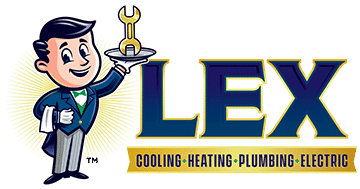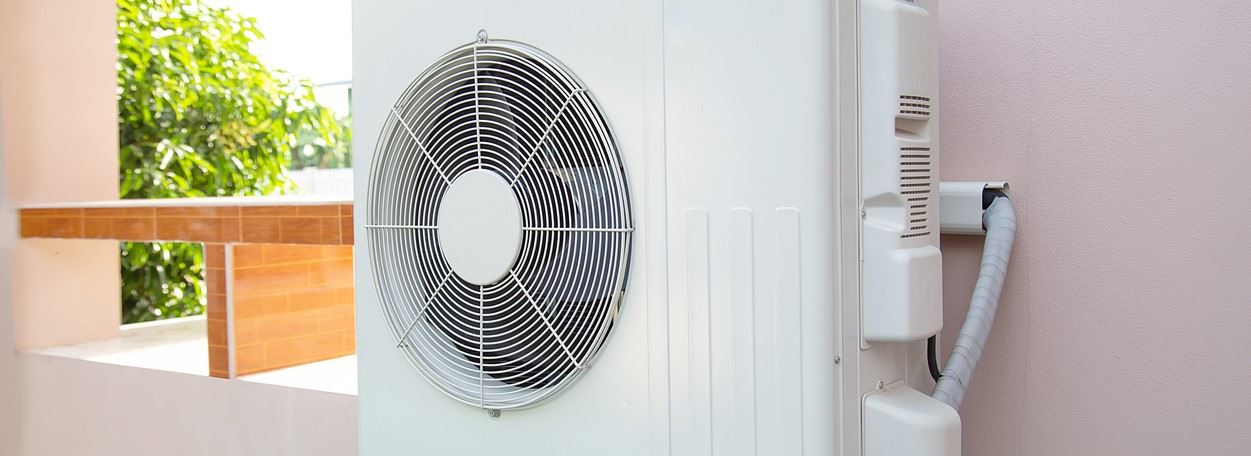If you’re in the market for a new central heating system, you have a big decision ahead of you: Do you go with a heat pump or a furnace? They’ll both provide reliable comfort, but they go about doing so in different ways. To better understand which one will meet your needs and budget, it helps to know how they operate.
What’s the Difference Between a Heat Pump and a Furnace?
The biggest difference between a heat pump system and furnace is that heat pumps can heat and cool a home, while furnaces can only heat. Since heat pumps can act as both heaters and air conditioners, they’re more versatile than furnaces. Any homeowner that has a gas or electric furnace will need an additional air conditioning unit.
Another difference between heat pumps and furnaces is how they generate heat. To produce heat, furnaces burn heating oil or natural gas. Heat pumps run off of electricity and draw in outside air and transfer it indoors. Due to the way that heat pump vs. furnace generate heat, the heat pump actually produces less heat compared to furnaces, which makes heat pumps better for warmer climates. Although, there are cold climate heat pumps available, in Texas, that isn’t something you need to worry about. Since furnaces use an energy source like natural gas to create their own heat, they are better suited for colder climates. Also, if you have natural gas lines running alongside your home, a gas furnace might be the way to go.
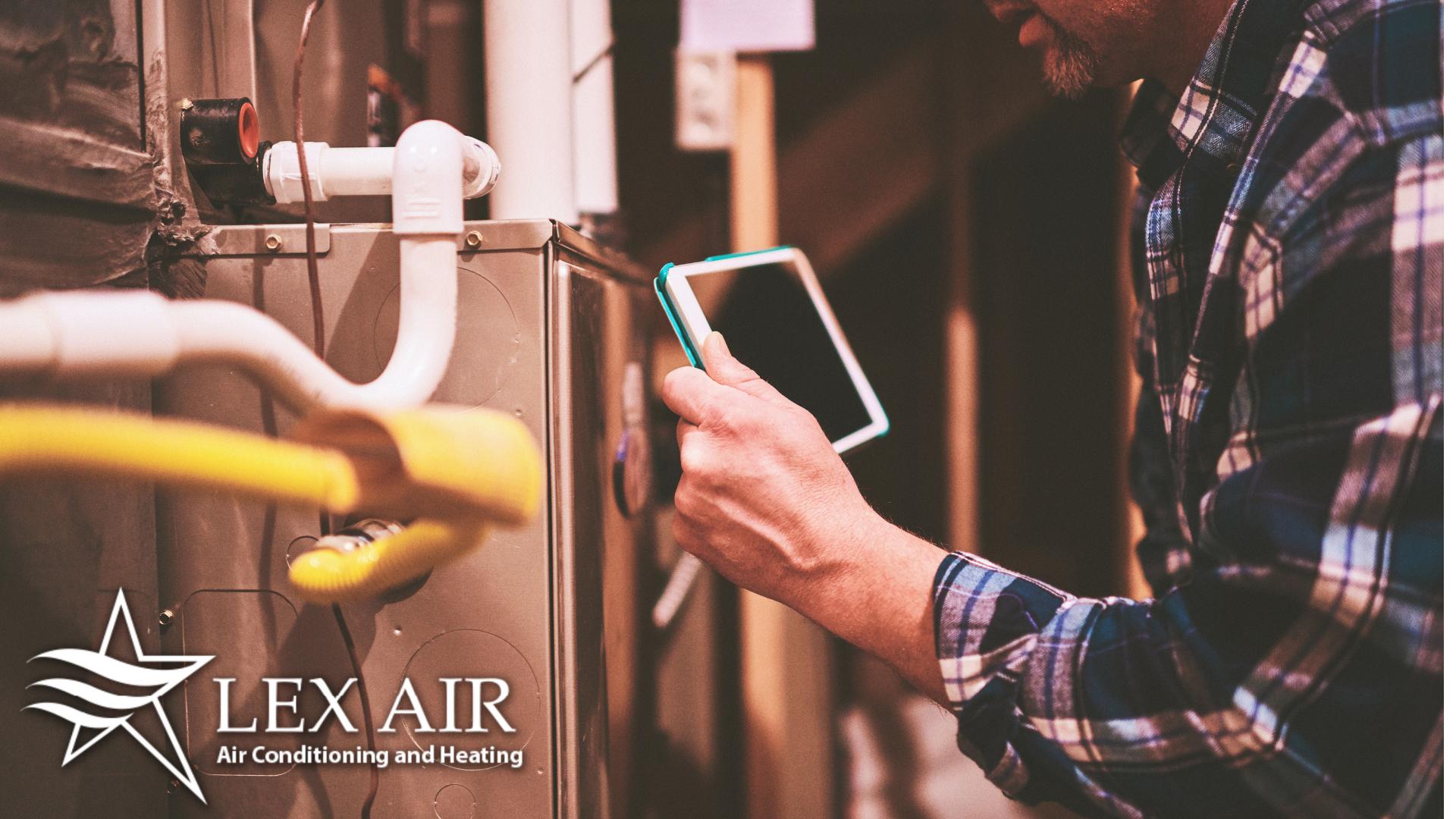
In some areas, furnaces can be installed with heat pumps. This is known as dual fuel systems. An example of a dual fuel system is pairing gas furnaces with air source heat pumps which work together to measure the outside temperature to decide the best option to heat the home. When using both a heat pump and furnace, homeowners can save on heating costs between 30-50%.
How a Furnace Works
A conventional gas furnace works like this:
- Natural gas ignites flames in a burner assembly
- The flames heat up a heat exchanger
- The blower forces air across the heat exchanger, distributing warmth through the ductwork and into your home’s living spaces
- As each room warms up, the return ducts draw the cooler air through the vents to go through the heating process
- The cycle repeats
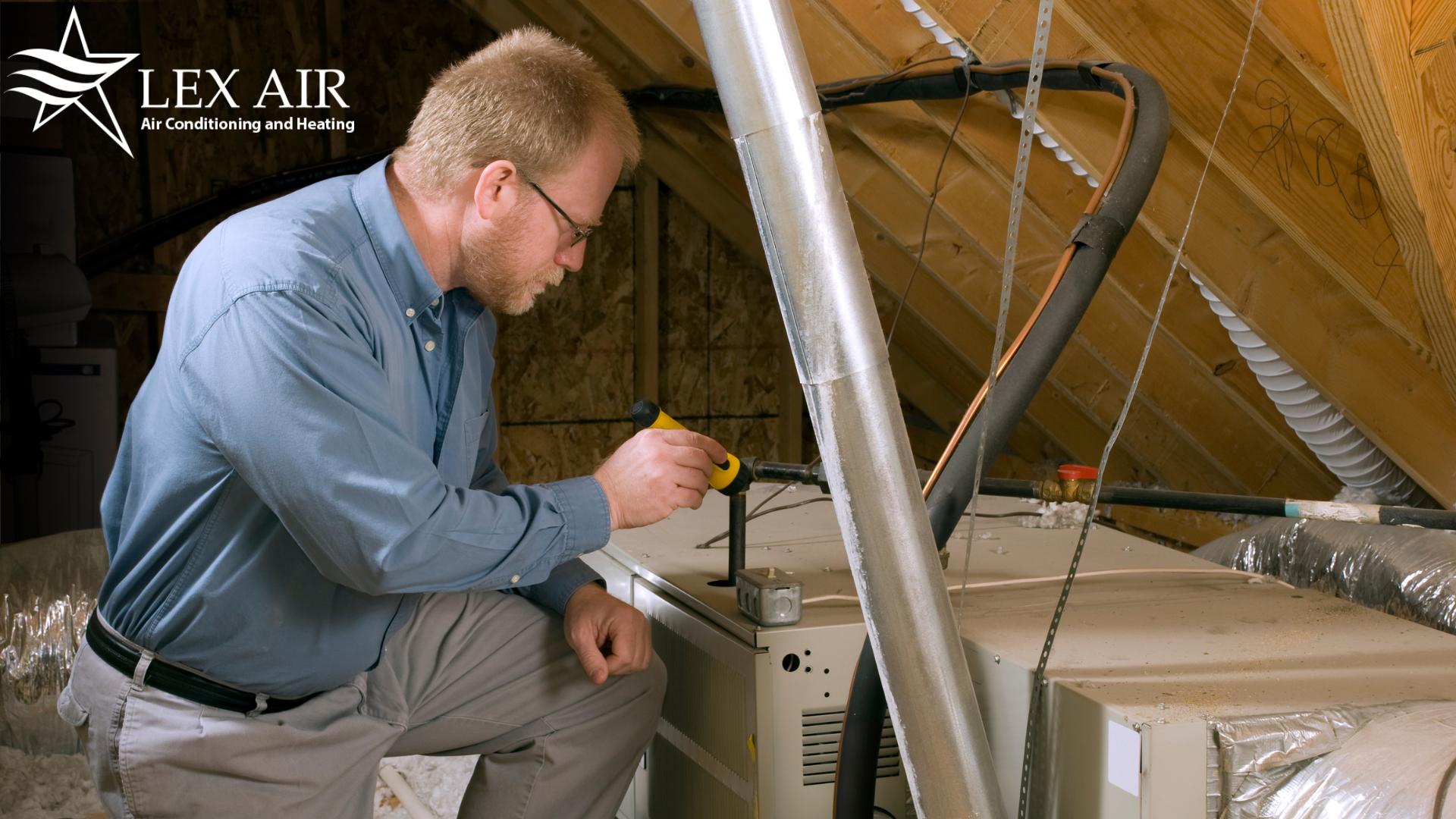
Pros and Cons of a Furnace
Based on where you live, a gas furnace might be a better option for heating your home. Furnaces are generally installed in homes built in cold climates since they cannot cool homes during the summer months. Some pros and cons to consider when installing a natural gas furnace are listed below. Reminder, these are pros and cons for gas furnaces, not electric furnaces.
- Pro: Lower Installation Cost – The initial cost of installing a gas furnace is lower than installing a heat pump.
- Pro: User Friendly – Gas furnaces are relatively easy to use and everyone is generally familiar with the technology used to run a furnace.
- Pro: Fast – A properly working gas furnace will be able to quickly heat a home.
- Con: Use More Energy – Gas furnaces use up to three times more energy than heat pumps. They also have a hard time keeping the home at a comfortable temperature since they turn off throughout the day.
- Con: Loud – Gas furnaces can be loud when heating your home, not to mention they may smell like burning dust when they first kick on.
- Con: Maintenance – Gas furnaces require more maintenance since they need to be cleaned and serviced in order to prevent fires.
- Con: Life Span – The life span of gas furnaces can sometimes be shorter than heat pumps.
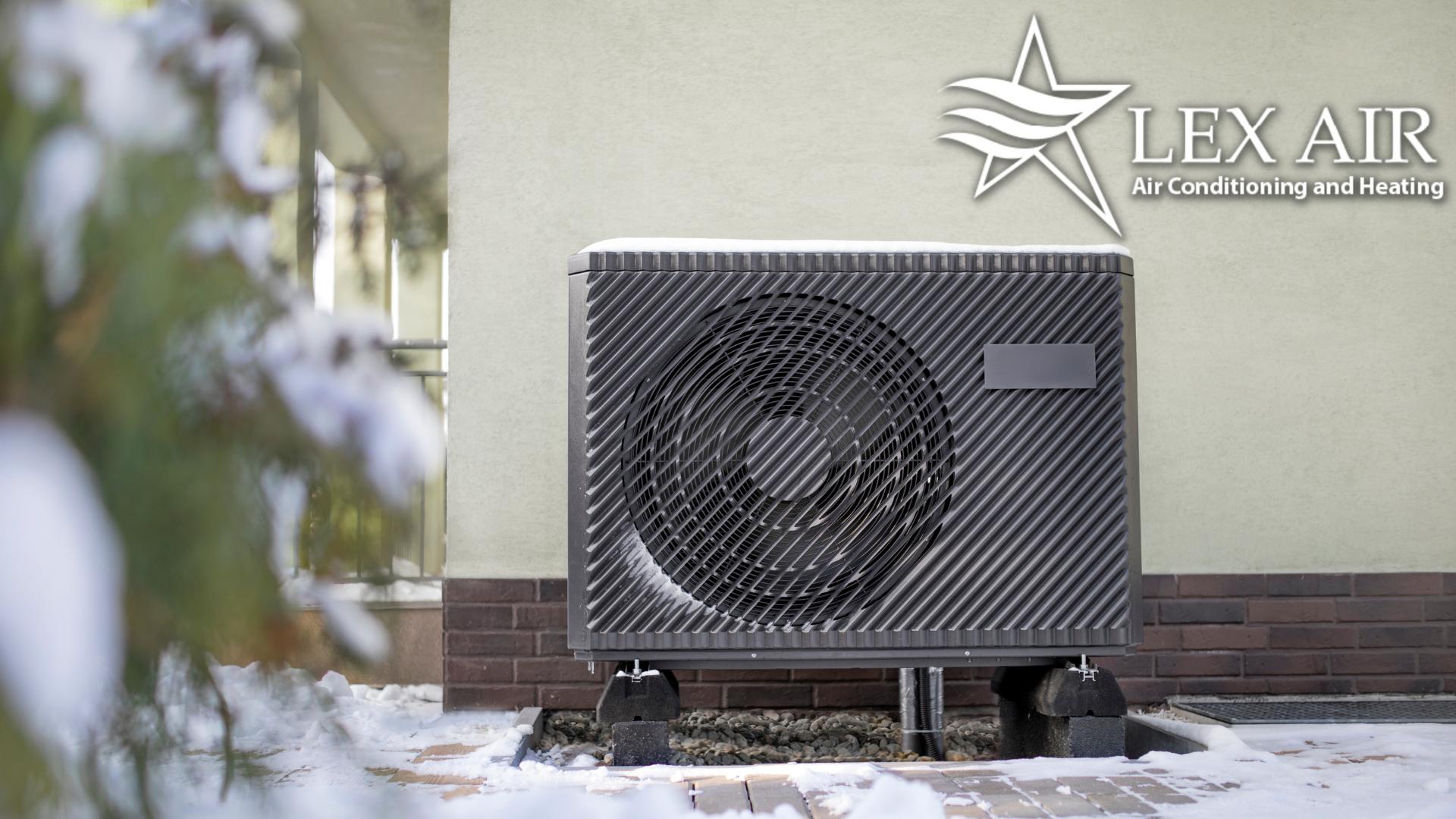
How a Heat Pump Works
Heat pump systems are a little more complicated. Unlike a gas furnace, an electric heat pump doesn’t need a fuel source to create heat. Rather, it pumps warm air out of cold air. That’s right, even cold air contains heat energy — it’s science. Here’s how it works:
- The refrigerant absorbs heat from the outside air
- The outdoor compressor unit converts this heat into a hot liquid
- This liquid travels to the indoor fan coils (air handler)
- The blower distributes this heat through the ductwork
Pros and Cons of a Heat Pump
Although heat pump systems can both heat a home and cool a home, they do come with some limitations. Listed below are some pros and cons on installing a heat pump system.
- Pro: Energy Efficient – A heat pump system is more energy efficient. Gas and electric heating systems convert power into heat and waste a lot of energy in doing so.
- Pro: Better Air Quality – A big advantage to having a heat pump in your home is the humidity control. In the warmer months, your heat pump will also dehumidify the air while during the colder months, the heat pump won’t dry out the air. Other heating and cooling systems will require a humidifier and dehumidifier to combat moisture in the air and dry air, but a heat pump takes care of both without additional appliances.
- Pro: Quiet – Heat pumps operate quietly in comparison to other home heating systems.
- Pro: Safer than Gas Furnaces – With a heat pump system, you don’t have to worry about the dangers that can come with gas furnaces like gas leaks, carbon monoxide, or fires. This makes them safer than having a gas furnace heating your home.
- Con: Expensive Installation – Despite saving money in the long run, heat pumps are expensive to install. If you have a furnace in your home and are considering installing a heat pump, the cost for installation can be off-putting. While heat pump installation can be pricey, at Lex Air, we have financing options available.
- Con: Not Efficient in Extreme Weather – Since electric heat pumps draw from the outdoor air and ground to warm your home, during extreme cold weather, they are not able to find any heat. During cold snaps, your heat pump might work overtime to try and heat your home. Homeowners that live in a generally cold climate like Chicago might consider installing a backup heating system, like a dual fuel system, to help during the extremely cold months. Since we’re talking about Texas winters, this shouldn’t be an issue.
- Con: Larger Compared to Other Systems – Heat pumps require both an indoor and outdoor unit while gas furnaces only have one small indoor unit. Even though heat pumps are larger, they do act as both the heater and air conditioner whereas furnaces will need an additional air conditioner to cool the home.
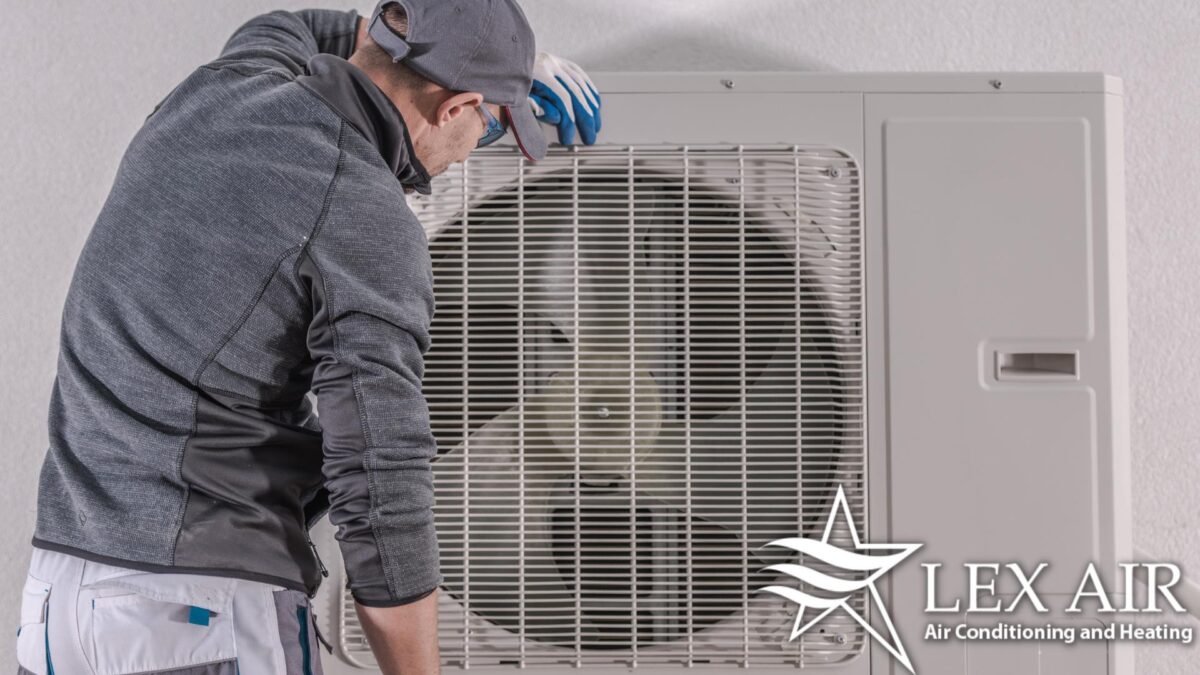
Is a Furnace or Heat Pump More Efficient?
So, when it comes to the best heating system for your home, the winner by a long shot is the heat pump. It’s the energy efficiency champion because, as previously stated, it doesn’t burn fuel to produce warmth. Instead, it taps into a free and abundant energy source: the outside air. It does, however, have limitations. The colder the air, the harder it has to work to convert it into heat. So, it’s losing a bit of efficiency with each drop in temperature. But this is Texas we’re talking about. It rarely dips below freezing, so a heat pump will do just fine.
A heat pump also doubles as an air conditioner. It reverses course, extracting heat from the inside and replacing it with cool air in the summer.
Bottom line: You can’t go wrong with either a furnace or a heat pump. Modern heating systems are designed with efficiency in mind and include a number of energy-saving features to slash operating costs. When you’re ready to replace your central heating system, turn to the experts at Lex Air Conditioning and Heating by calling (972) 217-8955.
